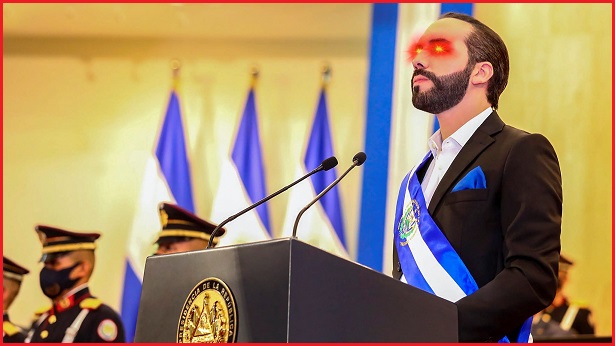El Salvador plans to become the first country to make bitcoin legal tender.
President Nayib Bukele announced his intentions to transform the Central American nation’s economy at the Bitcoin 2021 conference on the weekend.
In a pre-recorded message – played during a presentation from Strike CEO and founder Jack Mallers – Bukele said bitcoin was a part of his vision for El Salvador’s future.
“Next week I will send to Congress a bill that will make bitcoin a legal tender in El Salvador,” Bukele said.
“In the short term this will generate jobs and help provide financial inclusion to thousands outside the formal economy.
“And in the medium and long term we hope that this small decision can help us push humanity at least a tiny bit in the right direction.”
Bukele’s announcement was met with rapturous applause and a standing ovation from the live conference crowd in Miami, Florida.
Following the video, Mallers took off his white hoodie to reveal an El Salvador soccer jersey before showing his “favourite part” of the as-yet-unreleased bill.
“Central banks are increasingly taking actions that may cause harm to the economic stability of El Salvador,” the bill said.
“In order to mitigate the negative impact from central banks, it becomes necessary to authorise the circulation of a digital currency with a supply that cannot be controlled by any central bank and is only altered in accord with objective and calculable criteria.”
El Salvador’s national currency is the US dollar.
The proposed bill must still pass parliamentary scrutiny before becoming law, but the quasi-authoritarian Bukele is no stranger to using heavy handed gestures to get his way.
In February last year, he marched armed troops into El Salvador’s Legislative Assembly demanding that parliament approve a loan for new security equipment.
And last month he used his power to fire El Salvador’s highest court and attorney general, replacing them with loyalist in what the Washington Post described as a “presidential self-coup” in which a democratically elected leader attempts to pull down existing power structures designed to keep them in check.
#Bitcoin has a market cap of $680 billion dollars.
— Nayib Bukele 🇸🇻 (@nayibbukele) June 6, 2021
If 1% of it is invested in El Salvador, that would increase our GDP by 25%.
On the other side, #Bitcoin will have 10 million potential new users and the fastest growing way to transfer 6 billion dollars a year in remittances.
Bukele – a populist, young, Twitter-savvy president – explained the reasoning for wanting to become more bitcoin focused in a series of tweets.
He claimed that a significant bitcoin investment into the country would boost gross domestic product (GDP) by 25 per cent and that making the cryptocurrency a legal tender would add “10 million potential new users” to the network.
“Furthermore, 70 per cent of El Salvador’s population doesn’t have a bank account and work in the informal economy,” Bukele continued.
“Financial inclusion is not only a moral imperative, but also a way to grow the country’s economy, provide access to credit, savings, investment and secure transactions.”
Facebook used similar reasoning when it tried to launch its ill-fated Libra cryptocurrency.
1. Great weather, world class surfing beaches, beach front properties for sale.
— Nayib Bukele 🇸🇻 (@nayibbukele) June 6, 2021
2. One of the few countries in the world with no property tax.
3. No capital gains tax for #Bitcoin, since it will be a legal currency.
4. Immediate permanent residence for crypto entrepreneurs. https://t.co/j3eugJQCMd
The El Salvadorian president further suggested his country would be a haven for cryptocurrency enthusiasts because there would be “no capital gains tax for bitcoin, since it will be a legal currency”.
He also said cryptocurrency entrepreneurs would get “immediate permanent residence”.
Bukele has since changed his Twitter profile to one of him with glowing laser eyes – a popular meme in the bitcoin community.
Update Thursday 10 June: the vote to make bitcoin legal tender in El Salvador passed the legislative assembly with 62 votes out of a maximum 84.










